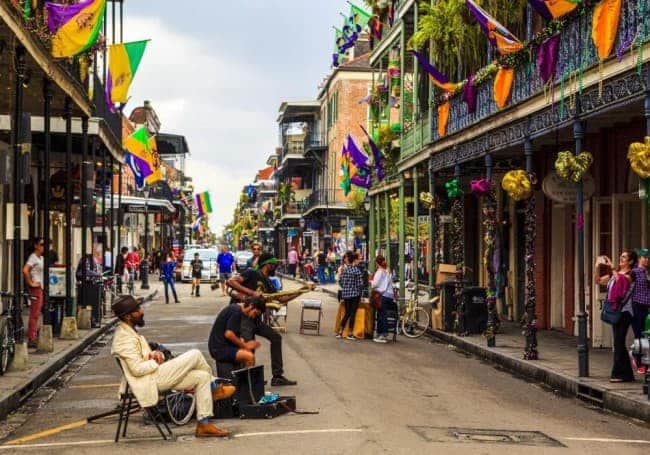When most people think of New Orleans, the first thing that comes to mind is Mardi Gras. The city is indeed world-renowned for its annual carnival celebration, but there’s so much more to New Orleans than beads and parties. The city has a rich history and culture that is steeped in music, food, and tradition. Let’s take a closer look at what makes New Orleans so special.
A Brief History of New Orleans
New Orleans was founded in 1718 by French explorer Jean-Baptiste Le Moyne de Bienville. The city quickly became an important port and commercial center for the French colony of Louisiana. In 1762, the colony was ceded to Spain after France’s defeat in the Seven Years’ War. However, Spain colonists did not embrace New Orleans the same way that the French had and the city fell into decline. In 1800, Louisiana was returned to France as part of the Treaty of San Ildefonso. Napoleon Bonaparte then sold Louisiana to the United States in 1803 as part of the Louisiana Purchase.
Since its inception, New Orleans has been a melting pot of cultures and traditions. The city has always been a major port, which has attracted immigrants from all over the world seeking their fortunes. This diversity is evident in the food, music, and architecture of New Orleans.
The Music of New Orleans
New Orleans is a city with a rich history and culture, and nowhere is that more evident than in its music. From jazz to rock to blues to R&B, New Orleans has been a hotbed for musical innovation for centuries. Let’s take a quick look at the history of some of the most important genres to come out of the Crescent City.
Jazz
Jazz is arguably the most iconic genre to come out of New Orleans. Born in the early 20th century, jazz was a fusion of African and European musical traditions.
The African influence is most evident in the rhythm and blues elements of jazz, while the European influence can be heard in the horns and other instruments used. Regardless of its origins, jazz quickly took off in popularity, with New Orleans becoming one of its epicenters.
Famous jazz musicians like Louis Armstrong and Jelly Roll Morton got their start in the clubs and bars of the French Quarter, and today there are still hundreds of places where you can catch a live jazz show any night of the week.
Rock ‘n’ Roll
While it might not have been invented in New Orleans, rock ‘n’ roll certainly came into its own in the city in the 1950s and 60s.
Bands like The Meters and The Neville Brothers blended elements of R&B, funk, blues, and pop to create a sound that was distinctly New Orleans.
And who could forget about Fats Domino? His brand of piano-driven rock ‘n’ roll was infectious, and he helped put New Orleans on the map as a rock ‘n’ roll hot spot. These days, you can still find plenty of places around town where you can hear this vibrant musical style.

Blues
The blues has its roots in African American folk music, and it first began to take shape in cities like New Orleans in the late 19th and early 20th centuries.
Like jazz, the blues has African influences in both its rhythms and lyrical themes. But what sets the blues apart is its focus on sadness, loss, and heartache. This sorrowful message resonated with many people during times of hardship, which helped propel the genre to popularity both inside and outside of New Orleans.
If you want to hear some authentic New Orleans blues, head over to Frenchmen Street any night of the week – there are dozens of great bars and clubs that feature live music every night.
The Food Culture of New Orleans
New Orleans cuisine is a unique mix of African, French, Spanish, and American culinary traditions. The city is known for dishes like gumbo, jambalaya, po’boys, and beignets. These dishes are hearty and flavorful, perfect for a city with such hot summers!
If you’re ever in New Orleans, be sure to try some of these local favorites. You won’t be disappointed!
Conclusion
New Orleans is a vibrant city with a rich history and culture that is steeped in music, food, and tradition. From its early days as a French colony to its present-day status as an American city with strong ties to Africa and Europe, New Orleans has always been a melting pot of cultures.
This diversity is evident in the city’s music, food, and architecture. If you’re ever in need of a good party or some great seafood gumbo, be sure to head on down to Louisiana! You won’t regret it!